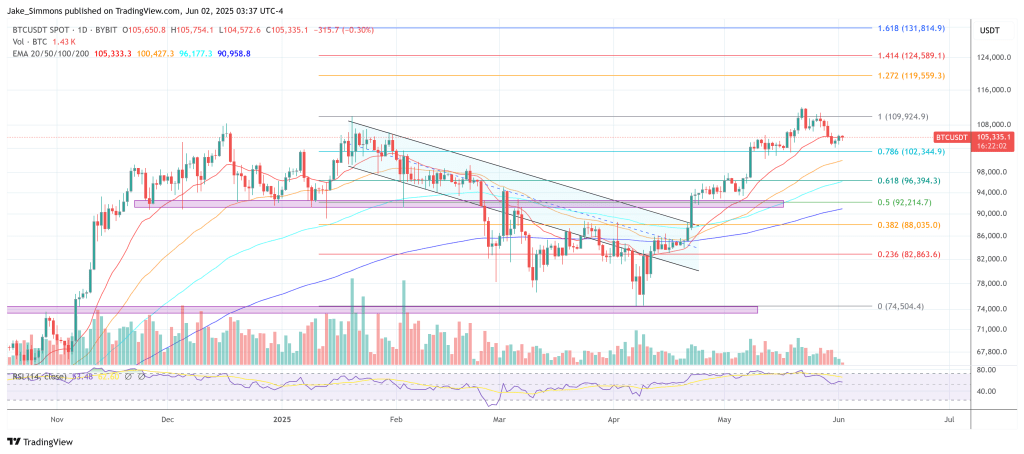IMF Vs. Bitcoin: Expert Warns Pakistan Will Be The Next To Fold
Less than a week after Pakistan unveiled a plan to channel 2,000 megawatts of surplus electricity into Bitcoin mines and artificial-intelligence data centres, the International Monetary Fund has asked Islamabad authorities for “urgent clarification” and scheduled a stand-alone virtual meeting with the Finance Ministry to discuss the power allocation.
The request lands in the middle of negotiations on Pakistan’s 2025/26 budget and only days after the country drew a second disbursement—SDR 760 million ($1.02 billion)—under its $7 billion Extended Fund Facility, bringing total IMF cash received this year to roughly $2 billion. The Fund has also approved a parallel $1.4 billion climate-resilience programme, deepening Islamabad’s reliance on multilateral finance at a moment when its external-debt maturities exceed $22 billion for the coming fiscal year, according to Fitch Ratings.
An official involved in the IMF talks admitted that the mining announcement has complicated the lender’s due-diligence. “There is a fear of further tough talks from the IMF on this initiative,” the official told Samaa. “The economic team is already facing stiff questions, and this move has only added to the complexities of the ongoing talks.”
Why Nation-State Bitcoin Mining In Pakistan Seems Unlikely
Daniel Batten, the New Zealand–based climate tech investor whose modelling on Bitcoin’s energy profile is widely cited in policy debates, argues that Pakistan now finds itself on the same collision course that derailed crypto ambitions in other debtor countries. “While I’m an optimist by nature and I really hope I’m wrong, I think Pakistan will struggle to follow through on its Bitcoin and Bitcoin-mining plans,” he wrote on X. “Short answer why: IMF.”
Expanding on that point, Batten listed what he calls the Fund’s “five-fold exposure”: Bitcoin can lower remittance costs, dilute seigniorage advantages, provide an alternative store of value for foreign-exchange reserves, reduce reliance on multilateral lending and create peer-to-peer rails that sidestep capital-controls architecture. “Bitcoin is a huge threat to IMF in five ways,” he said.
The analyst then turned to precedent. “IMF has already scuttled or pared back the ambitions of three out of three nations with Bitcoin adoption plans,” he noted, citing the Central African Republic’s stalled legal-tender implementation, Argentina’s agreement to anti-crypto conditions and the incremental revisions El Salvador made to its Bitcoin Law. “Highly likely we’ll see the same tactics with Pakistan. Given Pakistan’s economic vulnerabilities, it’s also likely IMF will be successful.”
According to Batten, the Fund’s first step will be a communications campaign emphasising “energy shortages,” “high electricity costs,” “unclear crypto regulations” and “AML concerns” as reasons for caution—arguments he dismisses as “made-up.” In his view, peer-reviewed research shows Bitcoin mining can strengthen grid reliability by monetising excess supply, while case studies such as Bhutan and El Salvador demonstrate the currency’s potential to foster economic self-reliance. “However, economic self-reliance reduces the customer-base for IMF as a lender, and is therefore not in its economic interests,” he wrote.
Batten adds that the leverage available to the Fund under its $7 billion Extended Fund Facility gives it ample room to translate warnings into programme conditions. He predicts the IMF will demand Financial Action Task Force-compliant rules, prohibit sovereign Bitcoin accumulation and tie future disbursements to policy reversals, “exploiting Pakistan’s dependence on funding to maintain reserves and meet existing IMF loan obligations.”
That dependence is stark. Batten points out that Pakistan faces $12.7 billion in debt repayments in fiscal 2025. Without IMF support, foreign-exchange reserves could slip below $4 billion—less than a month of imports—echoing the January 2023 balance-of-payments crisis, when reserves fell to $2.92 billion and the rupee’s slide accelerated from PKR 100 to 330 per dollar between 2017 and today. “This could trigger default on other obligations, given Pakistan’s history of FATF grey-listing and reliance on multilateral funding,” he warns.
The stakes, Batten argues, extend beyond Pakistan. “It means the gloves are off: IMF is terrified of Bitcoin breaking up its debt hegemony party, and will continue to stand in the way of Bitcoin adoption at a nation-state level,” he wrote. Should Islamabad retreat under pressure, the Fund would register what Batten calls a “4/4 track record” of blocking Bitcoin initiatives in debtor nations—evidence, he says, of a broader strategy to “oppose Bitcoin adoption from its indebted customers.”
His conclusion is blunt: “If you have a disruptive technology, don’t expect the ‘disrupted’ to stand idly by. They will use every technique at their disposal to preserve the monopoly they’ve enjoyed.” For governments intent on pursuing Bitcoin, Batten sees only two viable paths: “Be like Bhutan or the US, who don’t need the IMF, or have a backup lending plan in place so the IMF can’t pressure you into rolling back your policies and plans.”
At press time, BTC traded at $105,335.







